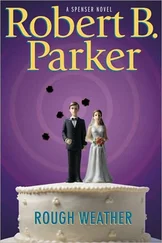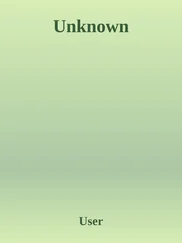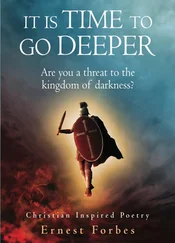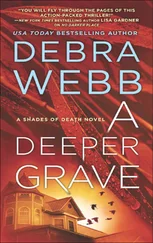"What's Savannah like now? We only studied about the 1700s."
"I've never been there, but it's very pretty with a lot of little parks and squares."
"How do you know that?"
"I read about it in a book that had pictures and information about historic places."
"If you take the job, does that mean we won't see you this summer?"
"I'll try to come home or maybe you can visit me."
"Would Ellie come too?"
"Of course, but it would be up to Mama and Daddy."
There was a moment of silence.
"I want you to be here with us. This is like you're moving away forever and never coming home."
I could hear a tremor in Emma's voice. I came over and stroked her hair. My eyes had adjusted to the dark, and I could see a forlorn expression on her face. I kissed her on the forehead.
"I love you wherever I am."
"But it's not the same if you're not where I can see and touch you."
I felt a pang of remorse. My focus had been totally selfish. There was great benefit in spending a summer at home. The love of family wasn't a daydream-it was the most enduring reality in my world.
I ALWAYS SLEPT BETTER in my own bed. I woke up when Chester, the family rooster, began to crow but managed to tune him out and sleep for another thirty minutes until a finger tapped me on the cheek. Through bleary eyes I couldn't tell if it was Emma or Ellie.
"Who is it?" I asked.
"Guess."
"Ellie?"
"That's right. Are you going to get the eggs?"
I pulled the sheet next to my chin. Not having to get up for class made the bed feel extra nice.
"Who's been doing it?" I mumbled.
"This is my week, but I wanted to help with the biscuits."
Too many thoughts were now in my head to allow another snooze. "Okay. I'll get the eggs."
I got up and pulled on a loose-fitting cotton dress. The women and girls in our family never wore pants, and we made most of our day-to-day clothes. Learning how to sew was part of our training. When I went to high school, Mama was nice enough to buy me some inexpensive skirts, dresses, and blouses at Wal-Mart. Storebought clothes blunted the stigma of our private dress code, but I still stood out as a feminine island in an ocean of unisex apparel. Snide questions and critical stares were inevitable, but it helped that a few girls in the school came from families with similar rules. Those girls were my closest friends.
The high school basketball uniforms could have been an impossible fashion obstacle to overcome. Mama played basketball in high school and was willing to bend on the rules, so long as the coach ordered a uniform with extra-long shorts that reached to my knees and a shirt with sleeves that came close to my elbows. At first glance, it looked a couple of sizes too big, but no one paid attention to the length of my shorts or my baggy shirt after I hit a nice shot or made a crisp pass for an assist. People in the church criti cized my parents for making an exception. Daddy told me not to worry about it.
I maintained the dresses-only rule through college and law school. I could always look Mama in the eye and answer truthfully when she asked me if I'd worn pants or blue jeans.
I SPLASHED WATER ON MY FACE, slipped my hair into a ponytail, and went downstairs. I grabbed the blue metal pail used to collect the eggs. The twins and I had decorated the pail with a chicken motif that included primitive portraits of some of our hens against a chicken coop landscape. I stepped outside into the cool morning air.
The wire enclosure where the chickens stayed was to the left of the basketball court. The birds stayed inside at night but were released to forage in the yard during the day. Flip and Ginger would bark at them, but our chickens' greatest enemies were possums.
Mama preferred white-shelled eggs, so we owned leghorns. We kept one rooster and four to six hens. Compact and muscular, our chickens bore little resemblance to the flaccid birds delivered to the processing plant in town. Daddy raised pullets to replace hens whose egg production declined. We never ate our hens. When they clucked their last cluck, the chickens received appropriate burial in the large pet cemetery at the edge of our property.
I went inside the pen. Chester charged in full-attack mode, but I ignored him. Top law students who could handle intense questioning by a tough professor would probably flee from Chester. The rooster came right up to my feet before giving a loud, self-satisfied squawk and strutting away.
I slowly entered the coop. Our hens were named after female characters in Shakespearean plays. Mama used an edited version of Shakespeare's works, with the bawdy jokes deleted, as part of her homeschool curriculum. Each bird's nesting box was marked with a carefully printed card: Juliet, Olivia, Viola, Cressida, Cleopatra, and Lady Macbeth. It was a noble company with Chester as their lord.
The hens knew what I intended to do and began protesting and pecking my hand as I slipped it into each box to pull out a warm egg. However, once the egg was gone, they abandoned the boxes and fluttered to the ground. Collecting eggs was the easy part of raising chickens. Cleaning the coop was the hard job. The coop needed cleaning. I hoped Mama had told one of the boys to do it. I carried the pail into the kitchen.
"Five for five," I announced.
"They're producing nicely," Mama replied. "There are more eggs in the refrigerator. Wash what you gathered this morning in vinegar and scramble up as many as you think we'll need."
Mama varied the breakfast menu. We often ate oatmeal or cereal with fruit, but once again she wanted to do something special in honor of my return. She knew I loved fluffy scrambled eggs with crisp bacon. The bacon was already beginning to sizzle in the skillet, and the biscuits were in the oven. I cracked open the eggs in a metal bowl and added salt and milk to make them lighter.
Kyle and Bobby didn't start spring vacation until the following week. They came into the kitchen dressed for school in slacks and short-sleeved collared shirts. My brothers blended in much easier than I did at their ages. Not only did women have to suffer the pain of childbirth, they also bore the reproach of nineteenth-century fashion in a twenty-first-century world. I beat the eggs harder to drive out my thoughts. Resentment led to the sin of bitterness.
The first bite of eggs after Daddy prayed was worth the early morning effort. Mama gave me two extra slices of bacon. Breakfast was a quiet meal. Everyone was thinking about the day ahead.
"I'll call Mr. Callahan's office," I said to Mama and Daddy. "I think his secretary gets there at eight thirty. I'd like to see him too, if he's available."
"Do you want me to go with you?" Mama asked.
"No ma'am," I answered a bit too quickly. "I mean, there's no need."
Daddy left for work, followed a few minutes later by my brothers, who rode to school in Kyle's truck. I cleaned up the kitchen while Mama and the twins began the school day. When I turned off the water, I could hear the sound of Mama's voice in the front room. She loved teaching. It would leave a big hole in her life when the twins reached high school age.
My homeschool years were pleasant memories. The yard, sky, woods, and the pond down the road were our science laboratory. I could identify many trees by leaf and bark. Math was incorporated into the practical functions of the household. Mama put a premium on being able to perform math mentally. Calculators weren't allowed; paper and pencil discouraged.
By age seven, I was reading the text in picture books and finished the entire Chronicles of Narnia a year later. Much of the day was spent reading. The county librarian, Mrs. Davis, would order anything Mama wanted through the state lending program. Twice a month, the old books went to town, and Mama returned with new ones. I'd read many of the classic works of literature required by my college English courses by the time I was in the ninth grade. Only the more controversial books didn't make Mama's list. When I finally read them, I usually understood why.
Читать дальше












